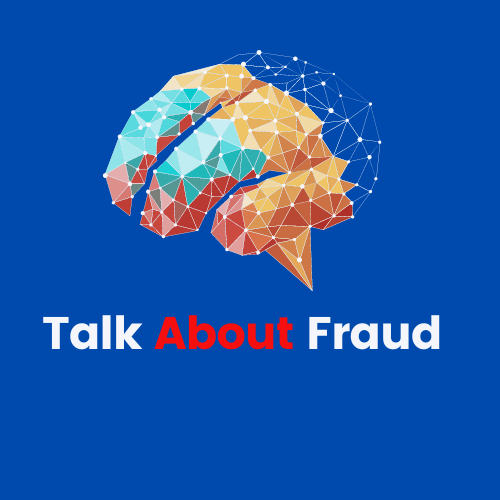Introduction: Construction fraud poses significant challenges to the integrity and sustainability of the industry. It encompasses various deceptive practices, including bid rigging, materials substitution, false billing, and bribery, among others. Such fraudulent activities not only undermine the trust between stakeholders but also lead to substantial financial losses and compromised safety standards. In this essay, we delve into the intricacies of construction fraud, highlighting its detrimental effects and emphasizing the indispensable role of audits in detecting and preventing fraudulent activities within the construction sector.

Understanding Construction Fraud: Construction fraud encompasses a wide array of illicit practices perpetrated by individuals or entities involved in construction projects. One of the most common forms of fraud is bid rigging, where contractors collude to manipulate the bidding process, thereby inflating prices and securing contracts unfairly. Moreover, materials substitution occurs when substandard or cheaper materials are used in place of specified ones, compromising the quality and safety of the structure. False billing involves invoicing for goods or services that were never delivered, resulting in financial losses for project owners. Bribery and kickbacks further exacerbate the problem by fostering a culture of corruption and unethical behavior within the industry.
The Impact of Construction Fraud: The repercussions of construction fraud extend beyond mere financial losses. Projects tainted by fraudulent activities often suffer from delays, cost overruns, and compromised quality, leading to disputes among stakeholders and tarnished reputations for the parties involved. Moreover, the safety of construction sites may be compromised if substandard materials or practices are used, potentially endangering the lives of workers and the public. Additionally, fraud undermines the competitiveness of the industry by distorting market dynamics and discouraging legitimate businesses from participating in projects.
The Role of Audits in Combating Construction Fraud: Amidst the complexity of construction projects and the multitude of stakeholders involved, audits play a crucial role in detecting and deterring fraudulent activities. Audits serve as a systematic examination of financial records, operational processes, and internal controls to assess compliance with regulations, identify irregularities, and mitigate risks. In the context of construction, audits can be conducted at various stages of a project, including pre-construction planning, procurement, construction, and post-construction phases.
Pre-construction audits involve scrutinizing the bidding process to ensure fairness, transparency, and compliance with procurement regulations. By examining bid documents, contractor qualifications, and bid evaluation criteria, auditors can identify potential red flags indicative of bid rigging or collusion. Moreover, audits can verify the accuracy and completeness of cost estimates to prevent cost inflation or padding during the bidding phase.
During the construction phase, audits focus on monitoring project expenditures, progress, and compliance with contractual obligations. Auditors review invoices, payment records, and change orders to verify the legitimacy of expenses and ensure adherence to budgetary constraints. Additionally, audits may involve on-site inspections to assess the quality of workmanship, adherence to specifications, and compliance with safety standards.
Post-construction audits aim to evaluate the overall performance of the project and assess the fulfillment of contractual obligations. Auditors reconcile final costs against budgeted estimates, assess the quality of deliverables, and investigate any discrepancies or claims arising from the project. Moreover, post-construction audits may involve reviewing warranty documentation, as well as conducting user satisfaction surveys to gauge the long-term impact and effectiveness of the project.
Auditors employ various techniques and tools to detect construction fraud, including data analysis, forensic accounting, interviews, and site inspections. Data analytics enable auditors to identify patterns, anomalies, and trends within financial transactions, procurement activities, and project schedules. Forensic accountants utilize investigative techniques to uncover fraud schemes, trace financial flows, and gather evidence for potential legal action. Interviews with key stakeholders, including project managers, contractors, and vendors, provide insights into the underlying dynamics and practices within the construction project. Site inspections allow auditors to assess the physical progress, quality, and compliance of construction activities, as well as identify any deviations from specifications or safety standards.
Conclusion: Construction fraud poses significant risks to the integrity, efficiency, and safety of construction projects. It erodes trust among stakeholders, undermines the competitiveness of the industry, and compromises the quality of built environments. However, through diligent oversight, robust internal controls, and comprehensive audits, the construction industry can mitigate the risks associated with fraud and promote transparency, accountability, and ethical conduct. Audits serve as a critical tool in detecting, deterring, and preventing construction fraud by providing independent assurance, identifying vulnerabilities, and safeguarding the interests of project owners, investors, and the public. By embracing a proactive approach to fraud prevention and implementing effective audit practices, the construction industry can uphold its reputation, enhance its resilience, and foster sustainable growth and development.
If you want more information about how to do a construction audit, check out Construction Audit Building a Solid Foundation which will be out in the Summer of 2024. If you need training or help planning your construction audit, reach out to us.


You really make iit seem so easy with your presentation but I find this
topic to be actually something thatt I think I would nevcer
understand. It seems too complex and very broad for me. I
am looking forward for your next post, I woll try to get the hang of it! https://Www.Waste-Ndc.pro/community/profile/tressa79906983/
I am glad to be one of several visitors on this outstanding web site (:, appreciate it for putting up.